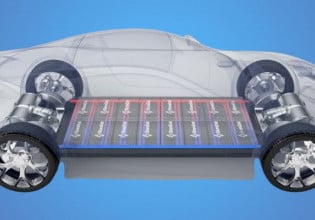Flexible Battery Developer’s Kits for IoT Applications
Imprint Energy announced the expanded availability of its developer's kit for its ultrathin, safe, flexible, printed batteries. Imprint's batteries are particularly well-suited for new types of very high-volume applications such as smart labels, smart tags, medical patches, pill bottle trackers, temperature tracking, medicine-delivery pens and more.
The batteries pack the power to communicate over short or long distances, and were especially designed to power IoT devices integrated with Semtech's LoRa® devices for low power wide area networks (LPWAN), as well as working with Bluetooth Low Energy and other standards.
The Imprint Battery Developer's Kit (BDK) gives product developers new degrees of freedom in product design and capability, helping them quickly prototype new products and complete application testing. The BDK includes 30 3-Volt battery packs (which can be split into 60 1.5-Volt cells), documentation, and importantly, access to Imprint's technical team to discuss specific applications and to support testing and evaluation.
 Imprint's Battery Developer's Kit helps designers prototype IoT applications.
Imprint's Battery Developer's Kit helps designers prototype IoT applications.
Mass Printing Zinc Polymer batteries
Imprint's batteries are well-suited to powering large numbers of IoT devices, sensors and labels now coming to market. Imprint has continued to advance both its ZincPoly™ battery chemistry and its process technology for high-volume, low-cost production.
The zinc polymer-based chemistry enables environmentally-safer batteries that are rechargeable and/or disposable; offer higher energy density in thin formats; show low resistance to support the power surges needed to wirelessly communicate over long distances; and are simpler to make.
Imprint's manufacturing process technology has been demonstrated on low-, medium- and high-volume printers, including common surface-mount technology lines and, as trials have demonstrated, roll-to-roll screen printers.
This allows Imprint partners, like electronic manufacturing services firms and contract manufacturers, to make batteries via a "mass print" approach rather than assembling them one at a time, and to directly integrate Imprint batteries with sensors, chips and antennas, further reducing total device costs.






